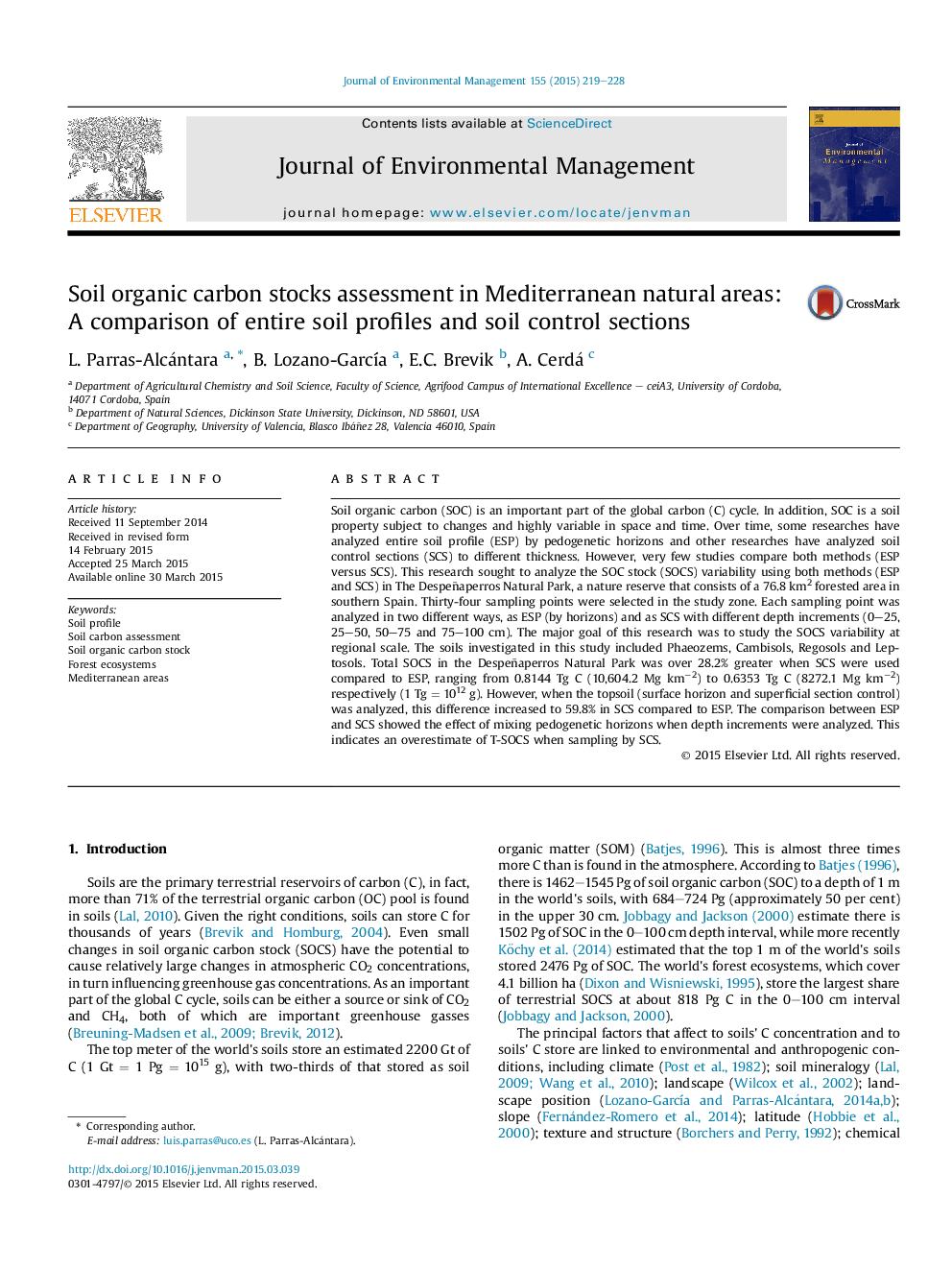| Article ID | Journal | Published Year | Pages | File Type |
|---|---|---|---|---|
| 1055616 | Journal of Environmental Management | 2015 | 10 Pages |
•Soil sequestration is a strategy to mitigate climate change.•SOCS in the study area was over 28.2% greater when soil control sections were used compared to entire soil profiles.•The analysis of both methodologies showed the effect of mixing pedogenetic horizons when depth increments were analyzed.•SOCS is overestimate when soil control sections are used.
Soil organic carbon (SOC) is an important part of the global carbon (C) cycle. In addition, SOC is a soil property subject to changes and highly variable in space and time. Over time, some researches have analyzed entire soil profile (ESP) by pedogenetic horizons and other researches have analyzed soil control sections (SCS) to different thickness. However, very few studies compare both methods (ESP versus SCS). This research sought to analyze the SOC stock (SOCS) variability using both methods (ESP and SCS) in The Despeñaperros Natural Park, a nature reserve that consists of a 76.8 km2 forested area in southern Spain. Thirty-four sampling points were selected in the study zone. Each sampling point was analyzed in two different ways, as ESP (by horizons) and as SCS with different depth increments (0–25, 25–50, 50–75 and 75–100 cm). The major goal of this research was to study the SOCS variability at regional scale. The soils investigated in this study included Phaeozems, Cambisols, Regosols and Leptosols. Total SOCS in the Despeñaperros Natural Park was over 28.2% greater when SCS were used compared to ESP, ranging from 0.8144 Tg C (10,604.2 Mg km−2) to 0.6353 Tg C (8272.1 Mg km−2) respectively (1 Tg = 1012 g). However, when the topsoil (surface horizon and superficial section control) was analyzed, this difference increased to 59.8% in SCS compared to ESP. The comparison between ESP and SCS showed the effect of mixing pedogenetic horizons when depth increments were analyzed. This indicates an overestimate of T-SOCS when sampling by SCS.
